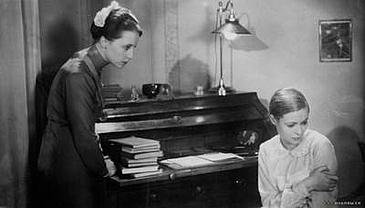* mit Einführung von Winfried Pauleit
Die Liebe zwischen Schüler und Lehrer ist ein Sonderfall. Sie konfrontiert die institutionalisierte Lehr- und Lernbeziehung mit einem Zuviel an persönlicher Nähe und körperlicher Zuwendung. Sie kann als Verletzung des Obhutsverhältnisses rechtlich geahndet werden. Mädchen in Uniform entwirft ein Verhältnis zwischen Schülerin und Lehrerin und stellt es gegen die strenge preußische Ordnung einer Erziehungsinstitution ohne Wärme und Verständnis. Der Film greift nicht nur die gleichgeschlechtliche Liebe unter Internatsverhältnissen auf, er gilt auch als einer der innovativsten Tonfilme seiner Zeit, der mit Atmosphäre, Dialog und insbesondere mit dem Klang und der „Rauheit der Stimme“ ein Liebesgefühl kinematografisch gestaltet.
D 1938, Regie: Leontine Sagan, mit Hertha Thiele, Dorothea Wieck, 98 Min.


